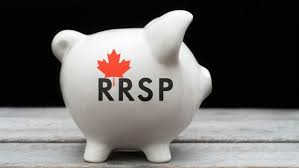 A Registered Retirement Savings Plan (RRSP) is one of the best ways to build long-term wealth. However, if the account is not used carefully, it may result in significant opportunity costs. Over 6.2 million Canadians contributed to their registered retirement savings plans or RRSP in 2020, accumulating a total of $50.1 billion for their retirement.
A Registered Retirement Savings Plan (RRSP) is one of the best ways to build long-term wealth. However, if the account is not used carefully, it may result in significant opportunity costs. Over 6.2 million Canadians contributed to their registered retirement savings plans or RRSP in 2020, accumulating a total of $50.1 billion for their retirement.
Contributions rose 13.1% in 2020 compared to the previous year, while the number of contributors rose by 4.9%, according to a report by Statistics Canada. Despite everyone’s enthusiasm for these accounts, financial advisors warn that RRSPs won’t be very useful if you don’t understand how those accounts work. Although RRSPs are pretty famous, there are certain subtleties about them that you, as a consumer, should understand.
Below are a few common mistakes that you should avoid when it comes to RRSPs:
Not having a plan in place
You must clearly understand your retirement plans and the projected income requirements. A retiree who wants to live life luxuriously and travel the world will probably need more money than someone who prefers to stay home and help in their community after retirement. Retirees always wish that they had more money than what they actually had before their retirement.
Having a strategy should take into account the different stages of life. It’s important to strike the correct balance between your goals, risk tolerance, and the time horizon of your retirement so that you won’t have to worry about money when you want to enjoy that seven-day weekend lifestyle.
Forgetting the purpose of RRSP
Saving for retirement is the goal of RRSPs, and if you take money out before you retire, it will be taxed unless it’s to purchase your first house or college. Your financial institution promptly deducts a predetermined amount of tax from each withdrawal, and there will also be an additional provincial tax deduction when they withdraw. Thus, you should not settle credit card debt by taking out money from your RRSP account.
You can take money out of your RRSP whenever you want, provided you’re willing to pay the associated taxes and your contributions to RRSP funds aren’t locked in. Your RRSP savings can be used for various items in this situation, such as expenses for family vacations, home improvements, auto maintenance, post-secondary education of your children, and medical bill payments.
However, the amount you withdraw from your RRSP will also be counted as part of your taxable annual income. This implies that you will be charged an amount if the money you withdraw puts you in a higher tax category than where you were before. This might also happen if the withholding tax is insufficient to cover your debts.
When it comes to things other than taxes, you should keep in mind that whenever you take out money from your RRSP fund, you’re losing that contribution which means that you could lose out on decades of tax-deferred growth when you withdraw money for a trip or even an emergency. You should avoid using your RRSP money for anything other than retirement and only put in the excess amount you can afford to set aside while you’re working. Ensure you have a sizeable emergency fund before depositing everything into your RRSP account.
Not keeping track of how much you can contribute
While early withdrawals are subject to penalties, making excessive contributions will result in tax consequences for you. Every year, you can contribute up to 18 percent of your income; for 2022, the maximum contribution amount is $29,220. Annual donations are carried over, so if you don’t reach your cap one year, you can catch up” in subsequent years. The maximum amount you can overcontribute in your lifetime is $2000.
On contributions that are made beyond that point, you will be charged 1% every month. You can find your contribution limit for the upcoming fiscal year on your CRA or Canada Revenue Agency’s notice of assessment. You can find it on your online CRA MyAccount as well.
Not having a beneficiary for your RRSP account
Apart from Quebec residents, those who have an RRSP account can name a beneficiary for their account. For residents of Quebec, however, the only thing they need to do is name their beneficiaries in their will.
The funds in your account can be carried over into the accounts of particular beneficiaries like your spouse, children, or grandchildren who are financially dependent on you, and they’ll be tax-deferred, which means that your heirs won’t be required to pay taxes on those funds until they start withdrawing from there. To qualify for this tax treatment, the beneficiary must be your spouse, kid, or grandchild who is financially dependent on you. The beneficiaries who do not fit this criterion will have to pay taxes.
In case you die without naming a beneficiary, the money you have in your RRSP account will be included in your estate, and it’ll have to undergo probate and be subjected to taxes.
Contributing to RRSP without keeping the rest of the financial picture in mind
Some people contribute the maximum amount they can to their RRSP account without considering whether that is the best course of action for them. People generally consider RRSPs when they consider retirement, but depending on your position, several other options could complement or even replace RRSPs.
An excellent example is TFSA or Tax-Free Savings account. You won’t be taxed on withdrawals from a TFSA, unlike an RRSP. This is an ideal plan for anyone in a higher tax bracket in retirement or who might require access to their money at some point. RRSPs should be a component of your retirement.
Conclusion
If you’re a resident who won’t qualify for the tax deduction, a student with debt, or a working person who prefers to save through your corporation, you might believe that an RRSP is not for you, and in some cases, that might be the right choice. However, there are other things that need to be considered, and it might become difficult to determine which course of action would be right for you. Thus, If you want to know if making RRSP contributions is in your best interest, it is recommended that you seek the advice of a financial counselor who is familiar with your situation.
About The Author:
Lyle Solomon has extensive legal experience, in-depth knowledge, and experience in consumer finance and writing. He has been a member of the California State Bar since 2003. He graduated from the University of the Pacific’s McGeorge School of Law in Sacramento, California, in 1998 and currently works for the Oak View Law Group in California as a principal attorney.




No Comments